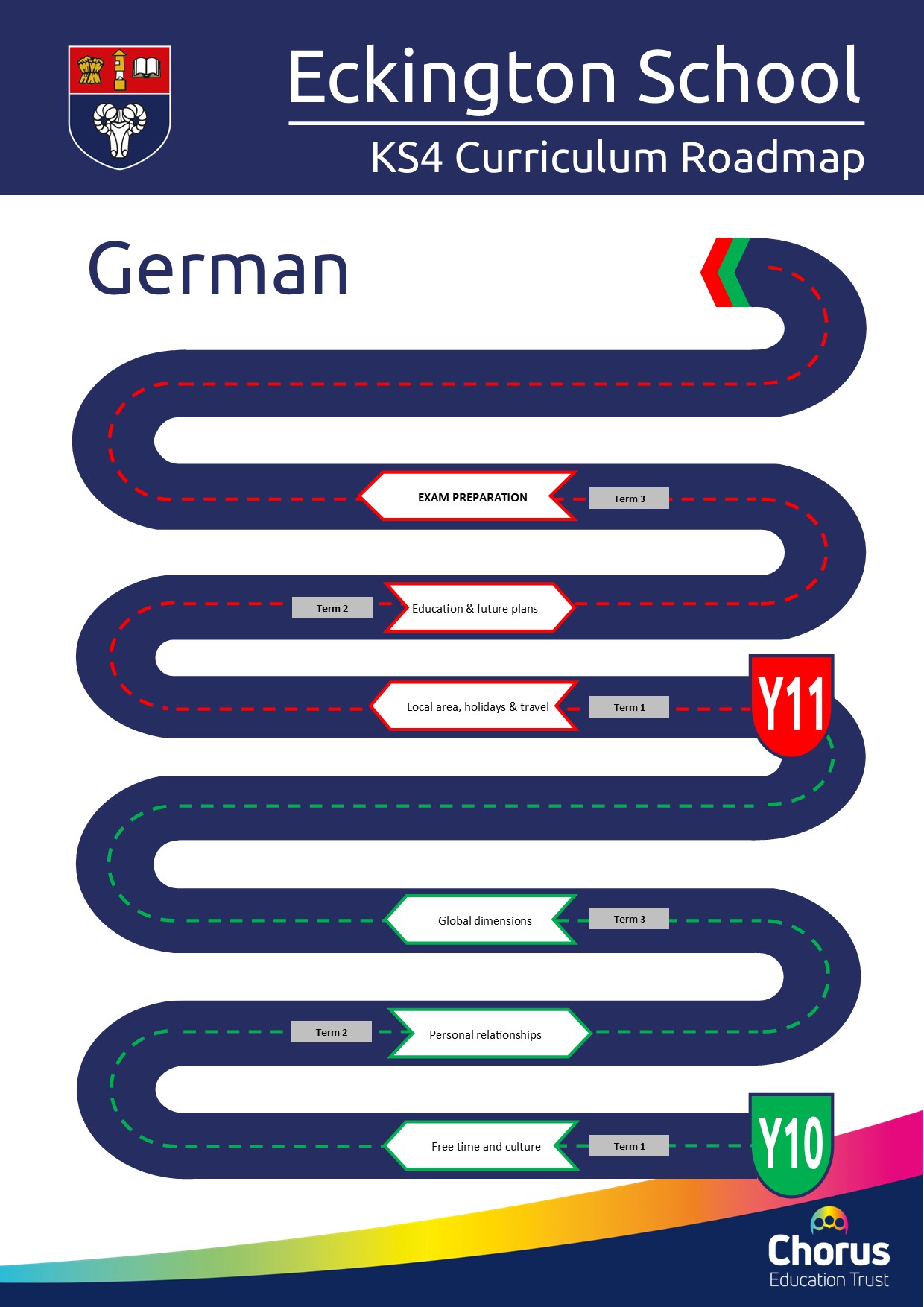Courses
We offer a broad and balanced curriculum, for key stage 3 (Years 7-9), key stage 4 (Years 10 and 11) and key stage 5 (Years 12 and 13 - Sixth Form). Click the appropriate button below to find the details for each subject offered in each key stage.

Overview
German
Introduction
In GCSE German, you will continue to develop your skills in speaking and writing and also in understanding both written and spoken language. Similar to key stage 3, lessons will include lots of practice of these skills in the foreign language but as you become more confident, you will learn to speak and write more accurately, with greater spontaneity and at greater length. In addition, you will become more confident in dealing with foreign language texts and conversations which are longer and more complex.
Qualification
GCSE
Awarding body
Pearson
Course leader
L Staley
Assessment
- Examination: 100%
- 25% listening (understand and respond to spoken language).
- 25% speaking (communicate and interact in speech).
- 25% reading (understand and respond to different types of written language and translate to English).
- 25% writing (communicate in writing and translate to German).
- Non-examined assessment: n/a
Curriculum
Curriculum Roadmap
Topics
- Theme 1: Identity and culture.
- Theme 2: Local area, holiday and travel.
- Theme 3: School.
- Theme 4: Future aspirations, study and work.
- Theme 5: International and global dimensions.
Skills and requirements
Skills learned
Learning a language can help you develop a variety of skills such as:
- Communication and presentation.
- Problem solving.
- Organisational.
- Resilience.
- Independence.
You will discover so much! Not only will you be more open to a whole new culture, you’ll be able to meet thousands of other people thanks to your extra language. No one knows where life will take us, and knowing an extra language might just make your life completely different.
Beyond the classroom
Future pathways
Speaking and additional language could improve your future job prospects. There are countless opportunities in an almost limitless range of jobs for people with language skills at all levels.




